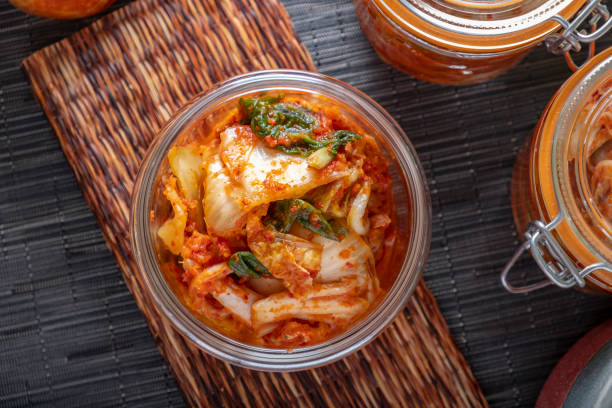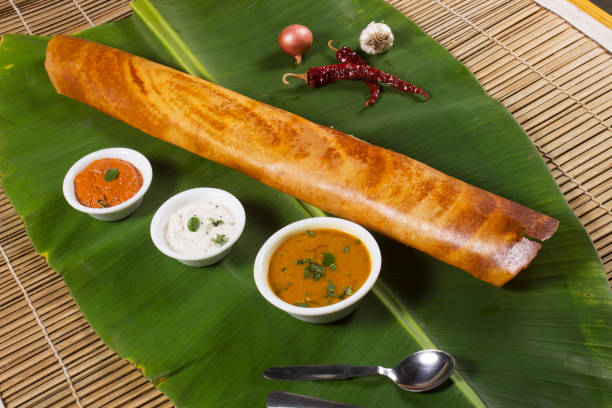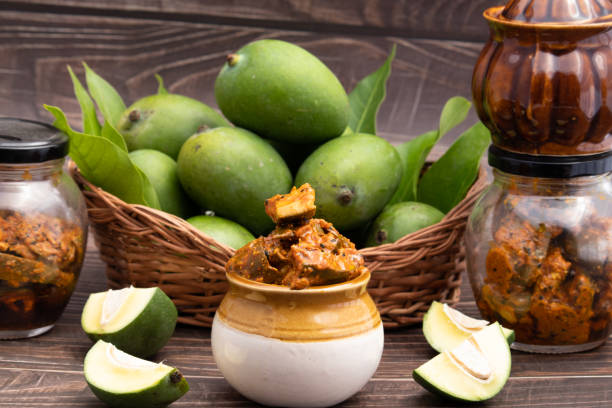
Fermentation: The Global Legacy
From Korea’s piquant kimchi and Japan’s umami-rich artisanal miso to India’s heritage-infused idli and South America’s zesty chicha, fermentation has long been a cornerstone of global cuisine.

At its heart, fermentation is a precise culinary art. Microorganisms—bacteria or yeast—methodically break down sugars and starches, creating complex flavors, refined textures, and bioactive compounds that enhance vitality and overall wellness.
Once confined to the hearth, these traditional techniques are enjoying a distinguished resurgence, making their way into marketplaces, cafés, and haute cuisine, where they now shine on the global stage.
Fermentation in Indian Cuisine and its Global Revival

Across India, fermentation has been a cherished aspect of daily life. From crisp, buttery dosas and airy dhoklas to the refreshing spice of chaas, the soul-soothing kanji, and the tang of authentic pickles, these foods delight the palate while naturally supporting gut health.

Globally, a similar revival is underway—kombucha has become a café staple in the West, kimchi has transcended its role as a side dish to become a comfort-food icon, and miso is being reimagined for contemporary convenience. What was once local and functional is now international and aspirational.
Fermented Foods Refining The Modern Palate
- Probiotic Power: Fermented foods are rich in probiotics and prebiotics, nurturing a balanced gut microbiome naturally.
- Functional Wellness: They aid digestion, strengthen immunity, and support mental well-being.
- Clean and Wholesome: Minimal processing and transparency make them a symbol of refined simplicity.
- Plant-Based Harmony: Perfectly complement plant-based diets and modern wellness practices.
- Global Flavor and Tradition: Offer bold, sophisticated flavors while honoring time-honored culinary heritage.
- Heightened Health Awareness: Rising interest in immunity and wellness has boosted demand.
The Market Scale
The fermented-foods market is vast and growing, valued at over USD 240 billion in 2024 and projected to reach USD 380–395 billion by the early 2030s. Annual growth is expected to remain robust at 4–6%, reflecting a sustained global appetite for these wholesome foods.
Asia-Pacific leads the market due to its deep culinary traditions, while North America and Europe are quickly catching up as wellness trends drive demand for kombucha, sauerkraut, and plant-based probiotic products. Niche segments like naturally fermented foods are expected to nearly double over the next decade, signaling a long-term lifestyle shift rather than a passing trend.
Fermentation and The Science Behind it
Scientific studies increasingly validate what cultures have known for centuries: fermented foods enhance gut microbiota diversity and digestive health.Some research links them to reduced inflammation and improved mood regulation through the gut-brain axis.

However, benefits depend on quality, variety, and moderation. Overprocessed products or those high in sugar or salt can diminish their efficacy. A diverse range of fermented foods ensures maximum nutritional impact.
Branding and Consumer-focused Fermentation Trend
- Strain-Specific Probiotics: Transparent labeling of bacterial strains builds consumer trust.
- Plant-Based Fermentation: Non-dairy yogurts, cheeses, and beverages are rapidly expanding, catering to vegan and lactose-intolerant consumers.
- Convenience: Ready-to-eat kimchi, probiotic drinks, and fermented sauces make daily consumption effortless.
- Fusion and Flavors: Chefs blend traditional fermentation with modern culinary trends, such as miso-glazed vegetables, kimchi tacos, and kombucha cocktails.
- Sustainability and Authenticity: Emphasis on heritage recipes, clean ingredients, and minimal waste practices is increasingly prominent in marketing.
Fermentation: Fusion, Innovation, and Sustainability

Evolving beyond traditional staples, Fermented foods have become a global culinary and wellness phenomenon. From enhancing gut health to inspiring modern cuisine, fermentation bridges heritage, flavor, and functional wellness, making it an essential part of modern regimen worldwide.
Find out more at The World Times.




1 thought on “Fermentation is Shaping The Global Cuisine”